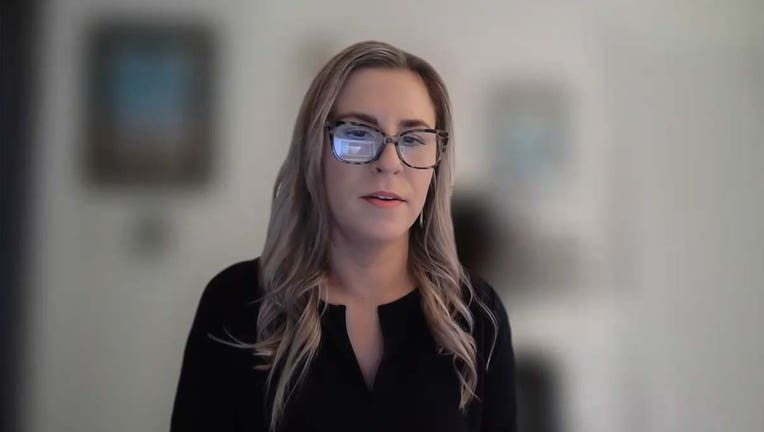Minneapolis teachers union moves one step closer to strike

Greta Callahan, president of the Minneapolis teachers union (FOX 9)
MINNEAPOLIS (FOX 9) - After a vote on Tuesday, the Minneapolis Federation of Teachers is a step closer to a strike.
During a meeting, the joint executive board of the Minneapolis Federation of Teachers and Education Support Professionals voted unanimously to give its members the power to vote on a strike.

Minneapolis teachers union continues push for online classes as COVID cases rise
The extreme wind chill forecast for Monday morning became the perfect storm, when combined with the COVID-fueled bus driver shortage for Minneapolis Public Schools. The district announcing online learning for Monday only, bringing a mixed reaction from the president of the Minneapolis Teachers Union.
In a statement, MFT President Greta Callahan says the decision Wednesday is the result of a "frustratingly slow" bargaining process with the district that has dragged out over two years. The vote Wednesday gives teachers another negotiating chip as the bargaining process continues.
"We want the administration to feel the same urgency we do about addressing the mental health crisis in our schools, reducing class sizes, controlling caseloads in special education, and increasing educator compensation so that we don’t continue to lose staff, especially educators of color, to surrounding districts and other professions," wrote Callahan in a statement.
In an email, the federation outlined its goals, saying as part of its "safe-and-stable schools" agenda, it is seeking:
• Retaining educators of color through improvements to working conditions, pay, culturally relevant and responsive professional supports, and going out of seniority order if layoffs and/or excessing occurs.
• Reducing class sizes, which has academic benefits and would allow for actual physical distancing in classrooms and other instructional spaces to lower the risk of outbreaks that would force more students and educators to miss in-person instruction.
• Accelerating the hiring and training of ESPs to fill the more than 10% of position vacancies that exist in the district, including those ESPs who play a vital role in the education of students who receive special education services.
• Increasing mental health supports for MPS students by bringing the ratio of school counselors and social workers to students down from one for every 600 students, or more. The recommended ratio is one mental health professional for every 250 students.
• Improving the quality of education for students with special needs and reducing teacher burnout by controlling caseloads and the associated paperwork.
• Designating some teachers at each school to work remotely with students who cannot attend school in person because the students have tested positive for the virus or are isolating at home after an exposure. These would be called "QuaranTeams."
• Hiring enough substitute teachers and bus drivers to meet the pressing demands of educating students during a pandemic.
• Increasing compensation for both teachers and education support professionals to make teacher salaries competitive with surrounding districts and raising starting ESP compensation from the low $20,000s to $35,000.

